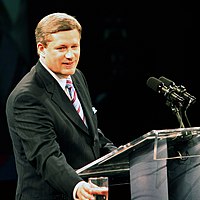This is good news IMO. They won a minority government. A majority would have been nice but they won more seats.
globeandmail.com: Harper bets the House, wins another minority
globeandmail.com: Harper bets the House, wins another minority


